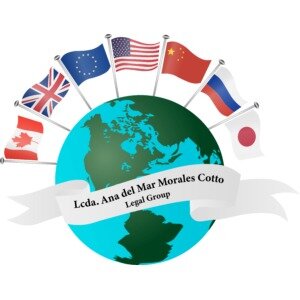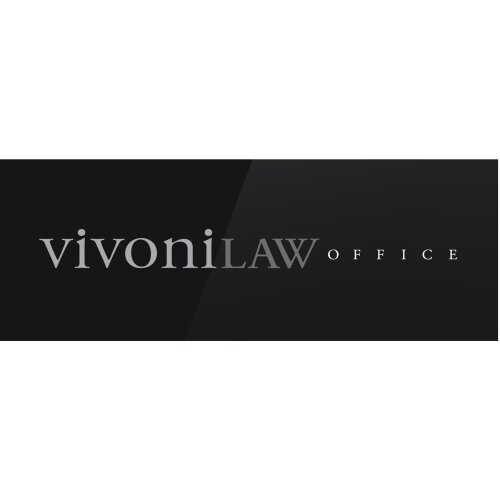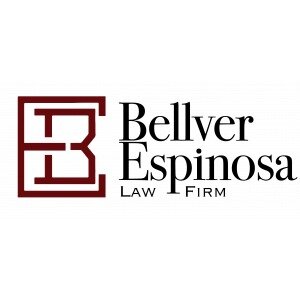Best Mining Law Lawyers in Puerto Rico
Share your needs with us, get contacted by law firms.
Free. Takes 2 min.
Or refine your search by selecting a city:
List of the best lawyers in Puerto Rico
About Mining Law in Puerto Rico
Mining Law in Puerto Rico is a specialized area that covers the exploration, extraction, management, and environmental regulation of mineral resources on the island. While Puerto Rico is not typically known for large-scale mining activities, there are still legal frameworks in place that regulate limited resource extraction, particularly of materials like sand, gravel, stone, and certain minerals. These laws intersect with land use, environmental protection, and public safety regulations, making compliance essential for individuals or companies engaged in or affected by mining activities.
Why You May Need a Lawyer
Engaging in mining activities or dealing with mining-related issues in Puerto Rico often requires legal assistance due to the complex regulatory environment. Here are some common reasons you may need a Mining Law lawyer:
- Obtaining the proper permits or licenses for mining operations
- Ensuring compliance with environmental laws and avoiding penalties
- Resolving disputes over land ownership or mineral rights
- Responding to government enforcement actions or investigations
- Negotiating contracts or leases for mining or land use
- Pursuing or defending against claims for property damage
- Navigating zoning and land use restrictions specific to mining
Due to the intersecting state, local, and federal requirements, legal guidance is often crucial for avoiding delays, fines, or litigation.
Local Laws Overview
Puerto Rico's legal framework governing mining is shaped by both Puerto Rican statutes and regulations as well as applicable federal laws. Key local aspects include:
- Permitting and Licensing: The extraction of minerals generally requires permits issued by the Puerto Rico Department of Natural and Environmental Resources (DRNA). The permitting process involves environmental impact assessments and public input.
- Environmental Regulations: Strict environmental safeguards apply to mining operations. Laws are in place to protect water bodies, natural habitats, and public health, often requiring ongoing monitoring and reporting.
- Land Use Zoning: Only certain areas are designated for mining, and operations must comply with municipal zoning plans.
- Property and Mineral Rights: In Puerto Rico, property owners may not automatically have the rights to minerals beneath their land. Questions may arise regarding state versus private ownership of mineral resources.
- Restoration and Closure Requirements: Operators are responsible for rehabilitating land after mining activities, according to specific reclamation standards set by DRNA and environmental agencies.
- Federal Regulations: Federal environmental laws, such as the Clean Water Act, may also apply, particularly for operations affecting navigable waters or federally protected lands.
Understanding these laws is crucial for compliance and successful operations.
Frequently Asked Questions
What minerals can be legally mined in Puerto Rico?
The most commonly extracted materials are sand, gravel, stone, and clay. Mining of precious metals or other minerals is rare and heavily regulated. Each resource may have its own permitting requirements.
Who regulates mining activities in Puerto Rico?
The Department of Natural and Environmental Resources (DRNA) is the primary local authority regulating mining activities, including permitting and enforcement. Some federal agencies may also be involved depending on the location and nature of the mining.
Do I need a permit to extract sand or gravel from my own property?
Yes, extracting sand, gravel, or other minerals typically requires a permit, even on private land. The DRNA oversees permit issuance based on environmental and safety factors.
How long does it take to get a mining permit in Puerto Rico?
The process length varies. Obtaining a full permit can take several months due to required environmental studies, public hearings, and agency reviews.
What protections exist for the environment during mining operations?
Environmental laws impose thorough requirements for preventing pollution, protecting water sources, and rehabilitating land after mining. Operators must submit environmental impact assessments and comply with strict operational guidelines.
Can the government stop my mining operation once it is permitted?
Yes, permits can be suspended or revoked if operators violate environmental laws, permit conditions, or pose threats to public health or safety.
Are there penalties for unauthorized mineral extraction?
Yes, unauthorized extraction can result in significant fines, restoration costs, and even criminal charges, depending on the severity and intent of the violation.
What happens if my mining activity damages a neighbor's property?
You may be liable for damages through civil claims. Property owners affected by mining can seek compensation or injunctive relief through the courts.
Do federal mining laws apply in Puerto Rico?
Certain federal laws, especially those relating to environmental protection, can apply to mining activities in Puerto Rico. For example, the Clean Water Act and Endangered Species Act may govern certain aspects of mining operations.
Can mining rights be transferred or sold?
Yes, mining rights can generally be sold or leased subject to government approval and compliance with all applicable laws and permit conditions.
Additional Resources
If you need more information or assistance with Mining Law issues in Puerto Rico, the following resources may be helpful:
- Department of Natural and Environmental Resources (DRNA) - Main regulatory agency for mining permits, compliance, and environmental protection.
- Puerto Rico Planning Board - Responsible for zoning and land use planning, including areas designated for mining.
- Office of the Environmental Ombudsman - Provides information on environmental rights and can help mediate citizen concerns related to mining impacts.
- Puerto Rico Department of Justice - Handles civil and criminal enforcement related to unauthorized mining and resource extraction.
- Local Bar Associations - Can offer lawyer referrals for mining and environmental law matters.
Next Steps
If you are facing a legal issue related to mining in Puerto Rico, consider the following steps:
- Gather all relevant information about your situation, including property documents, permits, correspondence, and any notices from government agencies.
- Consult with a lawyer familiar with Mining Law in Puerto Rico. Early legal guidance can help avoid costly mistakes and streamline compliance.
- Contact the Department of Natural and Environmental Resources or other local agencies to clarify any permitting or compliance questions.
- Stay informed about your rights and obligations under both local and federal regulations governing mineral extraction.
- If facing enforcement action or dispute, act promptly to protect your interests, including seeking legal representation and responding to agency notices within required timeframes.
Taking a proactive approach with sound legal advice can help ensure your mining activities are successful and fully compliant with Puerto Rican law.
Lawzana helps you find the best lawyers and law firms in Puerto Rico through a curated and pre-screened list of qualified legal professionals. Our platform offers rankings and detailed profiles of attorneys and law firms, allowing you to compare based on practice areas, including Mining Law, experience, and client feedback.
Each profile includes a description of the firm's areas of practice, client reviews, team members and partners, year of establishment, spoken languages, office locations, contact information, social media presence, and any published articles or resources. Most firms on our platform speak English and are experienced in both local and international legal matters.
Get a quote from top-rated law firms in Puerto Rico — quickly, securely, and without unnecessary hassle.
Disclaimer:
The information provided on this page is for general informational purposes only and does not constitute legal advice. While we strive to ensure the accuracy and relevance of the content, legal information may change over time, and interpretations of the law can vary. You should always consult with a qualified legal professional for advice specific to your situation.
We disclaim all liability for actions taken or not taken based on the content of this page. If you believe any information is incorrect or outdated, please contact us, and we will review and update it where appropriate.
Browse mining law law firms by city in Puerto Rico
Refine your search by selecting a city.












